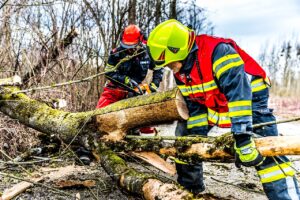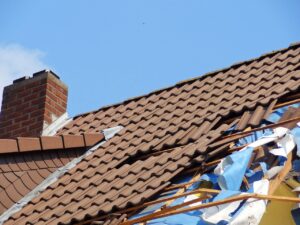Whether you have trees growing in your own property, or your neighbors have trees close to your boundary, or there are trees in a public space close to your own home, there is always potential for damage from falling trees or branches. As a property owner it is important to know the extent of Massachusetts liability laws as they apply to fallen trees and be aware of things you can do to limit your own liability.
Negligence and an “Act of God”

By negligence, it means that the property owner where the tree was growing could have avoided the likelihood of the tree falling, or at least limited the damage done, if a suitable level of care had been used in caring for the tree. Trees can become diseased and become more liable to succumb to natural forces. If a property owner can be shown to have been negligent in their care of the tree growing on their land, any damage done to neighbors, even if the tree fell on public land outside the property, may be determined to be the fault of the tree owner and therefore make them liable for the costs of removing the debris and repairing damage to property caused by the tree falling.
On the other hand, a storm may be so fierce that the tree would have fallen anyway, even if it had been maintained well. In this case, the most likely scenario is that the cost of removal and repair to damaged property on any neighboring land would be borne by the neighbor. Massachusetts does not have a specific state statute covering tree damage. This is typically the responsibility of the local jurisdiction where the tree falls. Homeowners should certainly find out what the local fallen tree laws are and how they could have an impact on them if damage by fallen trees affects them in any way.
The commonly used term if natural forces predominate in a fallen tree incident is that it is “an act of God.”
Examples of liability in the event of fallen tree damage
Example 1: Absentee owner of a property on which several large trees are growing has been reminded of the poor health of some of the trees. During a severe winter storm, one of the larger trees falls down and lands on the roof of the neighbor’s home, causing significant damage. The neighbor has been increasingly alarmed at the lack of attention to what appears to be diseased trees and his insurer recommends the hiring of an arborist to assess the causes of the tree fall. The arborist reports that despite the strength of the storm, it would have been unlikely that the tree would have fallen if the diseased tissue had been removed or the tree maintained properly beforehand. The neighbor filed a personal injury claim against the neighbor and won substantial costs including an amount for punitive damages.
Example 2: Large, healthy pine tree on an owner’s property is struck by lightning during a summer thunderstorm. The tree is split near the base and much of it ends up in the neighbor’s yard. Because the tree was healthy and there was no evidence of negligent care for the tree, the neighbor bears the responsibility for the cost of clearing the debris and removing the fallen timber. Fortunately, none of the neighbor’s actual home is touched by the fallen tree and the property owner next door whose tree it was helps out with the cleanup by loaning his chain saw.
Example 3: A bad storm leads to several trees that are growing along a city street being damaged. Branches are broken off and two smaller trees felled. The strong wind sends some of the broken tree branches into private property bordering the street. Windows are broken in some houses by the debris and there is also some damage to a wall. Unfortunately for the homeowners, there is no evidence that the local town council’s Parks and Recreation Department or any other jurisdiction has been negligent. The damage is declared an “Act of God”, meaning that the homeowners affected must try and claim the cost of the damage back from their individual home insurance providers.
Insurance and tree damage in Massachusetts

Note that even if the trees that had fallen on a private person’s property were originally growing next door on a neighbor’s property, or growing on public land, unless there is proven evidence that negligence was a factor in the damage, the liability rests with the owner whose land the fallen tree has landed in.
Avoiding liability for fallen tree damage
Whoever the property owner, private individual, club or organization or government entity, it is advisable to pay attention to the health of any trees on the respective property. Maintaining healthy trees with the help of arborists and other tree experts will reduce liability if a tree or part of it is snapped off in a storm or high winds and causes damage to a neighboring property.
Contact us for legal advice in the event that your own property has been affected by falling trees.
